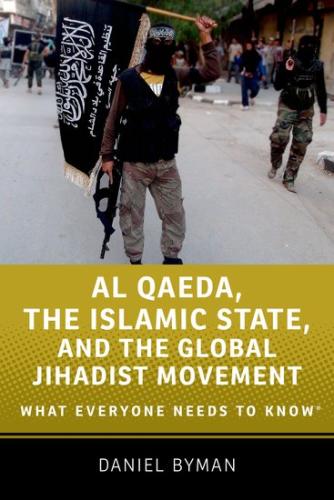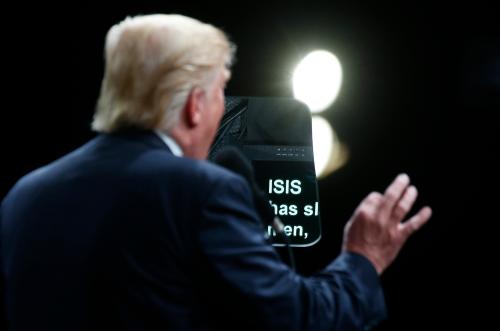President Trump’s new National Security Advisor, Lt. Gen. H.R. McMaster, spent much of his career fighting and winning wars in the Middle East, which required him to know the local cultures and treat Muslims like humans rather than scripturally programmed robots, writes Will McCants. Below, he explains how he might clash with other figures in the White House, and what it could mean for policy. This piece originally appeared on Politico.
When America’s most influential Islamophobes are upset, you know the president made a good choice. “Score one [for] the swamp,” whined Robert Spencer upon hearing the news that Donald Trump appointed Lt. Gen. H.R. McMaster to be his national security adviser. Spencer makes a living scaring Americans about the dangers of Muslim soccer moms. “John Bolton lost out to this guy?” sputtered his frequent partner in whine, Pamela Geller, who scoffed at the general for saying, “Every time you disrespect an Iraqi, you’re working for the enemy.”
The Islamophobes are not wrong to sense that McMaster will be hostile to their worldview, according to those who know him best. McMaster spent much of his career fighting and winning wars in the Middle East, which required him to know the local cultures and treat Muslims like humans rather than scripturally programmed robots. “He absolutely does not view Islam as the enemy,” said Pete Mansoor, who served with McMaster in Iraq. “He understands that the world is not one dimensional, that the Muslim world is not one dimensional,” said John Nagl, who also served with McMaster. In other words, the complicated causes of terrorism require complicated solutions.
McMaster’s nuanced views will likely be at odds with those of the president’s chief political strategist, Steve Bannon, and the other members of Bannon’s so-called Strategic Initiatives Group, a policymaking body he co-leads with the president’s son-in-law and chief of staff. Bannon believes the teachings of Islam and a supine West are primarily to blame for jihadist terrorism, as does his counterterrorism adviser Sebastian Gorka. Both scoff at the idea that jihadism arises from a confluence of factors, most of which are not religious. “This is the famous approach that says it is all so nuanced and complicated,” Gorka told the Washington Post. “This is what I completely jettison.”
McMaster’s disgraced predecessor, Michael Flynn, agreed with the Bannonites and was disdainful of the intelligence community’s analysis, which he believed ignored the religious motives of jihadists in order to please President Barack Obama. I served in the State Department when Flynn was still in government and, having seen some of the same analysis Flynn saw, I can say that the intelligence community did not ignore religion; it just didn’t inflate it as the primary driver of jihadist terrorism. The intelligence community was also careful to disaggregate jihadist groups according to their competing interests and to distinguish those groups from nonviolent Islamists. With McMaster’s appointment, such analysis is now likely to find a sympathetic ear in the White House.
McMaster is also known as a military innovator who listens first and then changes direction accordingly. “You gotta come in with your ears open,” McMaster, then a colonel, told his soldiers in Iraq. “You have to really listen to people.” He pioneered the counterinsurgency strategy that President George W. Bush later adopted to stabilize Iraq, and he has pushed the Army to adapt its doctrine so it can better counter Russia’s hybrid warfare in Ukraine.
Such flexibility is essential for addressing the dizzying array of threats that confront the United States, especially those posed by jihadists and Russia. He is not likely to share his new boss’ Russophilia or his belief that ISIS can be destroyed without committing large numbers of American troops to stabilize its former territories. He’s also not likely to be impressed by the retread “war of ideas” approach to jihadism promulgated by Bannon and his circle, who argue that the United States can defeat the movement by empowering moderate Muslims to intellectually discredit it. That approach was tried under the Bush administration and, under another guise, by the Obama administration, to little effect.
What has been proven to work in combating jihadist militias is the same broad approach McMaster won praise for employing in Tal Afar: using intelligence judiciously, separating the truly dangerous from the merely angry, creating fissures between unlikely allies and recognizing that restraint can be the most powerful weapon of all. To his mind, militant ideologies find fertile soil when the ground is tilled by civil war; bring security and the ideologies will struggle to survive.
[I]n a White House full of self-proclaimed alpha males who equate counterterrorism seriousness with the willingness to kill, no one will be able to marginalize McMaster by playing the tough guy card against him.
Although McMaster is intellectually nimble enough to help his boss navigate the treacherous sands of national security policy, he will be competing with Bannon for the president’s attention. Trump put Bannon on the key body of the National Security Council, the Principals Committee, an unprecedented appointment for a political adviser. And Bannon’s Strategic Initiatives Group has reportedly been overseeing the chaotic rollout of the president’s most controversial counterterrorism policies.
Still, in a White House full of self-proclaimed alpha males who equate counterterrorism seriousness with the willingness to kill, no one will be able to marginalize McMaster by playing the tough guy card against him. In the early days of the first Gulf War, then-Captain McMaster led what has been called “the last great tank battle of the 20th century” against Iraqi armored divisions during a sandstorm, killing or wounding nearly a thousand Iraqis in just over an hour. “Eagle Troop had taken no casualties,” McMaster wrote in a report about the engagement. “I and other soldiers offered prayers of thanks to God. We did not gloat over our victory.” Hopefully, that combination of a deadly efficiency, sincere humility and respect for his adversaries will help McMaster maneuver to the fore of Trump’s national security team so he can calmly guide the new president through the storm of his own making.
The Brookings Institution is committed to quality, independence, and impact.
We are supported by a diverse array of funders. In line with our values and policies, each Brookings publication represents the sole views of its author(s).











Commentary
McMaster has the Islamophobes worried, and that’s a good thing
February 23, 2017